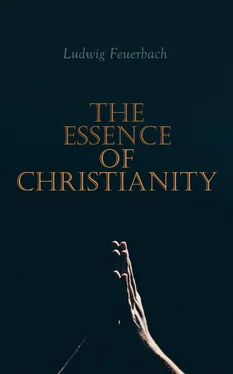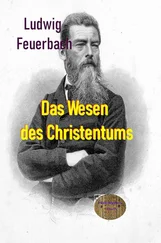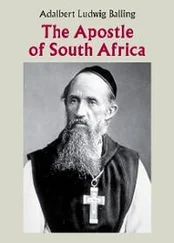Man—this is the mystery of religion—projects his being into objectivity, 15and then again makes himself an object to this projected image of himself thus converted into a subject; he thinks of himself is an object to himself, but as the object of an object, of another being than himself. Thus here. Man is an object to God. That man is good or evil is not indifferent to God; no! He has a lively, profound interest in man’s being good; he wills that man should be good, happy—for without goodness there is no happiness. Thus the religious man virtually retracts the nothingness of human activity, by making his dispositions and actions an object to God, by making man the end of God—for that which is an object to the mind is an end in action; by making the divine activity a means of human salvation. God acts, that man may be good and happy. Thus man, while he is apparently humiliated to the lowest degree, is in truth exalted to the highest. Thus, in and through God, man has in view himself alone. It is true that man places the aim of his action in God, but God has no other aim of action than the moral and eternal salvation of man: thus man has in fact no other aim than himself. The divine activity is not distinct from the human.
How could the divine activity work on me as its object, nay, work in me, if it were essentially different from me; how could it have a human aim, the aim of ameliorating and blessing man, if it were not itself human? Does not the purpose determine the nature of the act? When man makes his moral improvement an aim to himself, he has divine resolutions, divine projects; but also, when God seeks the salvation of man, he has human ends and a human mode of activity corresponding to these ends. Thus in God man has only his own activity as an object. But for the very reason that he regards his own activity as objective, goodness only as an object, he necessarily receives the impulse, the motive not from himself, but from this object. He contemplates his nature as external to himself, and this nature as goodness; thus it is self-evident, it is mere tautology to say that the impulse to good comes only from thence where he places the good.
God is the highest subjectivity of man abstracted from himself; hence man can do nothing of himself, all goodness comes from God. The more subjective God is, the more completely does man divest himself of his subjectivity, because God is, per se , his relinquished self, the possession of which he however again vindicates to himself. As the action of the arteries drives the blood into the extremities, and the action of the veins brings it back again, as life in general consists in a perpetual systole and diastole; so is it in religion. In the religious systole man propels his own nature from himself, he throws himself outward; in the religious diastole he receives the rejected nature into his heart again. God alone is the being who acts of himself,—this is the force of repulsion in religion; God is the being who acts in me, with me, through me, upon me, for me, is the principle of my salvation, of my good dispositions and actions, consequently my own good principle and nature,—this is the force of attraction in religion.
The course of religious development which has been generally indicated consists specifically in this, that man abstracts more and more from God, and attributes more and more to himself. This is especially apparent in the belief in revelation. That which to a later age or a cultured people is given by nature or reason, is to an earlier age, or to a yet uncultured people, given by God. Every tendency of man, however natural—even the impulse to cleanliness, was conceived by the Israelites as a positive divine ordinance. From this example we again see that God is lowered, is conceived more entirely on the type of ordinary humanity, in proportion as man detracts from himself. How can the self-humiliation of man go further than when he disclaims the capability of fulfilling spontaneously the requirements of common decency? 16The Christian religion, on the other hand, distinguished the impulses and passions of man according to their quality, their character; it represented only good emotions, good dispositions, good thoughts, as revelations, operations—that is, as dispositions, feelings, thoughts,—of God; for what God reveals is a quality of God himself: that of which the heart is full overflows the lips; as is the effect such is the cause; as the revelation, such the being who reveals himself. A God who reveals himself in good dispositions is a God whose essential attribute is only moral perfection. The Christian religion distinguishes inward moral purity from external physical purity; the Israelites identified the two. 17In relation to the Israelitish religion, the Christian religion is one of criticism and freedom. The Israelite trusted himself to do nothing except what was commanded by God; he was without will even in external things; the authority of religion extended itself even to his food. The Christian religion, on the other hand, in all these external things made man dependent on himself, i.e. , placed in man what the Israelite placed out of himself in God. Israel is the most complete presentation of Positivism in religion. In relation to the Israelite, the Christian is an esprit fort , a free-thinker. Thus do things change. What yesterday was still religion is no longer such to-day; and what to-day is atheism, to-morrow will be religion.
1.“Objectum intellectus esse illimitatum sive omne verum ac, ut loquuntur, omne ens ut ens, ex eo constat, quod ad nullum non genus rerum extenditur, nullumque est, cujus cognoscendi capax non sit, licet ob varia obstacula multa sint, quæ re ipsa non norit.”—Gassendi (Opp. Omn. Phys.).
2.The obtuse Materialist says: “Man is distinguished from the brute only by consciousness—he is an animal with consciousness superadded;” not reflecting, that in a being which awakes to consciousness, there takes place a qualitative change, a differentiation of the entire nature. For the rest, our words are by no means intended to depreciate the nature of the lower animals. This is not the place to enter further into that question.
3.“Toute opinion est assez forte pour se faire exposer au prix de la vie.”—Montaigne.
4.Homini homine nihil pulchrius. (Cic. de Nat. D. l. i.) And this is no sign of limitation, for he regards other beings as beautiful besides himself; he delights in the beautiful forms of animals, in the beautiful forms of plants, in the beauty of nature in general. But only the absolute, the perfect form, can delight without envy in the forms of other beings.
5.“The understanding is percipient only of understanding, and what proceeds thence.”—Reimarus (Wahrh. der Natürl. Religion, iv. Abth. § 8).
6.“Verisimile est, non minus quam geometriæ, etiam musicæ oblectationem ad plures quam ad nos pertinere. Positis enim aliis terris atque animalibus ratione et auditu pollentibus, cur tantum his nostris contigisset ea voluptas, quæ sola ex sono percipi potest?”—Christ. Hugenius (Cosmotheor., l. i.).
7.De Genesi ad litteram, l. v. c. 16.
8.“Unusquisque vestrum non cogitat, prius se debere Deum nosse , quam colere .”—M. Minucii Felicis Octavianus, c. 24.
9.The meaning of this parenthetic limitation will be clear in the sequel.
10.“Les perfections de Dieu sont celles de nos âmes, mais il les possede sans bornes—il y a en nous quelque puissance, quelque connaissance quelque bonté, mais elles sont toutes entières en Dieu.”—Leibnitz (Théod. Preface). “Nihil in anima esse putemus eximium, quod non etiam divinæ naturæ proprium sit—Quidquid a Deo alienum extra definitionem animæ”—St. Gregorius Nyss. “Est ergo, ut videtur, disciplinarum omnium pulcherrima et maxima se ipsum nosse; si quis enim se ipsum norit, Deum cognoscet.”—Clemens Alex. (Pæd. 1. iii. c. 1).
Читать дальше












